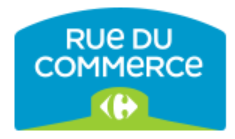A rare 0-for-3 in a UDRP.

The case was particularly egregious.
The most notable issue is that the domain name was registered by a company called Siru. Hence, SiruEcommerce.com. Did Rue Du Commerce not take a look at whois?
Arguing that RueDuCommerce, which I believe roughly translates to “street of commerce”, is confusingly similar to SiruEcommerce is laughable.
I really hope there was some sort of lost-in-translation issue here.
Given that the respondent’s company name is Siru, Rue Du Commerce also failed to show the respondent lacked legitimate rights and registered the domain in bad faith.
The respondent did not reply to the proceedings. Still, any time a complainant fails on all three measures, a panelist should consider if the case was filed in abuse of the policy.






“Arguing that RueDuCommerce, which I believe roughly translates to “street of commerce”, is confusingly similar to SiruEcommerce is laughable.”
I guess they were parsing it as SiRueCommerce.com? I’m not sure that that makes a huge difference though since that would translate as either “if street commerce” or “yes street commerce”, neither of which make a great deal of sense.
I think you’re right. And I agree, it still doesn’t make any sense.
One could almost feel sorry for these French complainants—but who is that gullible? Any grandma with a landline could have told them that this domain is irrelevant to their mark and to their SEM. Embarrassingly desperate billing from Chain Avocats.
One could posit that panelist Dr. Thomas Schafft didn’t find Reverse Domain Name Hijacking because he didn’t know to look for it. He doesn’t even cite the domain registrar. That in rem jurisdiction is Ninth Circuit via GoDaddy, which is a 100K penalty if an errant complainant ends up there. Sloppy decision, and a risky read for nascent complainants.
The very first domain I ever sold was also the only occasion in which I received a cease and desist letter. And it’s an eerily similar case.
My domain was a common Spanish dictionary word, registered in .ES along with many others. An attorney in France told me I was infringing the name of some obscure French financial services firm I’d never heard of. Their name was a neologism, simply invented. And it only resembled mine if they swapped the first 2 letters. Absurd!
After I explained all this to them, they went away. Later I got an anonymous offer, and they bought the domain. Utterly useless to them, but oh well.
I hate to admonish and entire country’s people over a few cases, but I see a good number of frivolous cybersquatting cases coming out of France.
https://domainnamewire.com/2012/07/13/default-judgement-issued-against-paris-over-domain-fight-damages-hearing-on-tap/